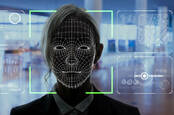This article is more than 1 year old
Auditors slam FBI for shoddy testing of facial-recog tech. But no big deal. It only has 641m images on its systems
No one has complained so far, fed honcho protests
Three years ago, the US Government Accountability Office (GAO) found that the FBI had very limited metrics about the accuracy of its face-recognition technology.
The official auditors thus made six recommendations to improve the tech's accurate and to ensure those using it comply with privacy laws. Now, in a new report, the GAO reports that just one of those recommendations has been fully adopted by the Feds.
The rush to implement facial-recognition tech nonetheless continues. The FBI says it can now search 641 million images through its Facial Analysis, Comparison and Evaluation (FACE) services unit, and maintains that face scans can enhance public safety if used properly. And the Transportation Security Agency (TSA), engaged in at least three pilot tests of facial recognition scanning at US airports, remains enthusiastic about the perceived security benefits of biometrics.
Must try harder
The GAO said as much in the report issued in conjunction with a hearing held Tuesday by the House Committee on Oversight and Reform. The watchdog agency found that while the Department of Justice has implemented legal compliance audits of the face recognition tech used in the FBI's Next Generation Identification-Interstate Photo System (NGI-IPS) and by its FACE unit, recommended assessments of the privacy impact and accuracy of the technology remain incomplete.
The hearing is the second such gathering of legislators in the past two weeks: The first, on May 22, involved testimony from academics and privacy advocates about the civil rights implications of facial recognition technology.
Detractors of the technology contend it's inaccurate and demographically biased, lacks adequate public oversight and threatens basic freedoms.
In last month's hearing, Clare Garvie, a senior associate at the Center on Privacy & Technology at Georgetown Law, said she believed "that federal, state, and local governments should place a moratorium on police use of face recognition" until communities can make informed decisions about whether or not they want the technology.
That was a week after San Francisco became the first US city to vote to ban city personnel from buying or using facial recognition technology and a week before Amazon defeated a shareholder proposal to stop selling facial technology services to government customers.
NGI-IPS, the FBI's mugshot database, now contains about 36 million images, according to Gretta Goodwin, the GAO's Director of Homeland Security and Justice. That's up from about 30 million when the agency issued its 2016 report. The 641 million figure represents the FBI's reach through external state and federal databases of images like driver's license photos and visa/passport photos.
Other issues
Beyond the agency's failure to provide privacy impact assessments, which detail how personal information gets collected and handled in federal systems, and system of record notices, which inform the public about the tech's usage, the GAO has concerns about the FBI's lack of accuracy data.
At the hearing, Kimberly Del Greco, deputy assistant director of Criminal Justice Information Services at the FBI, said the agency has improved facial recognition accuracy from 85 per cent at the end of 2017. Last year, she said, the FBI partnered with the National Institute of Standards and Technology (NIST) to conduct a test of facial recognition algorithms with various vendors and the leading vendor achieved 99.12 per cent accuracy.

We listened to more than 3 hours of US Congress testimony on facial recognition so you didn't have to go through it
READ MOREThe GAO however contends the FBI's data falls short, noting that it only tested accuracy when a user requested a list of 50 possible matches to a source image. The watchdog agency suggests smaller lists of possible matches might mean worse results. It also says the FBI hasn't yet assessed the accuracy of face recognition systems run by external partners, like other federal agencies.
Del Greco maintained that there haven't been any complaints about FBI face recognition.
"To date, we have not had any violations or notice from the public that they feel like their rights are violated," she said. ®
